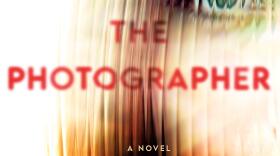“Murder Most Fowl: A Meg Langslow Mystery”
Author: Donna Andrews
Publisher: Minotaur Books
Pages: 320
Price: $26.99 (hardcover)
Suspects Abound in Mystery Organized Around “The Scottish Play”
It is commonly thought that Americans these days are reading less. That may well be, but without doubt we are publishing more than ever, hundreds of thousands of books per year, more than anyone can keep up with.
Recently “Murder Most Fowl” arrived in the mail. I had never heard of Donna Andrews, but the cover was cute, so I gave it a look. It turns out that Ms. Andrews has won no fewer than six different prizes, including the prestigious Agatha, and “Murder Most Fowl “is the 29th in the Meg Langslow Series.
The series titles are, as is often the case these days, clever puns, in this case based on birds. The first was “The Gift of the Magpie.” There are also “We’ll Always Have Parrots,” “Cockatiels at Seven” and “The Real Macaw.”
These cozy detective novels are all set in the Shenandoah Valley of Virginia. Our protagonist/ sleuth, Meg Langslow, is a metal artist. She has her own forge and creates decorative items, objets d’art as well as wrought iron benches. In this novel she is fashioning a wicked-looking dagger. Her husband Michael, is a professor of Drama at local Caerphilly College and is rehearsing “Macbeth.”
Thus the dagger.
One is never supposed to say Macbeth aloud. It’s bad luck. One should say “The Scottish Play.” But there you are.
All at the same time, the Langslows are hosting a kind of family reunion, with lots of cousins, the cast of The Scottish Play is saying in their house, in sheds and barns and tents, and out in their woods a group of hapless reenactors are portraying, not a Civil War battle as one might expect, but a medieval village they are calling Birnam Wood—yes, the one that would have to come to Dunsinane if Macbeth were to be defeated. They are led by a blowhard calling himself McLeod, using a comically fake Scottish accent.
These reenactors are awful and pitiful. They mean to be an eleventh-century Scottish military camp but their little huts of logs, branches and vines fall down. They are wet, filthy and miserable.
The Langslows insist they bring in Portapotties, which is anachronistic to be sure, but that bunch is courting disease.
Also out in the woods are witches with a cauldron, brewing potions and casting spells which may or may not be evil.
These mock medievalists are encouraged by the English Department, especially Professor Philpotts, and we get a good deal of comedy concerning the unresolved anger the English department still feels because the Drama department successfully seceded 10 years earlier.
Academic satire is almost too easy.
The actors, many of them students, are jealous and competitive. The pompous professors pontificate, and there is among them an obnoxious documentary filmmaker, Damien Goodwin, whose camera is everywhere. He shoots constantly, focusing on mistakes and errors, like flubbed lines at rehearsal, and the desperate hungry reenactors trying to steal sheep.
No one likes him to begin with and, one evening, after he screens his malicious work, a great many people want to kill him and someone does.
There are numerous suspects and oddly enough, this mystery, which is steeped in primitive Scotland, is solved with the highest twenty-first century technology—GPS coordinates, cell phones, reconstructing smashed digital devices. The sleuths are rarely off their phones, texting and sending pictures from morning till night.
Hercule Poirot used the little gray cells. Contemporary detectives use the little cell phones.
Don Noble’s newest book is Alabama Noir, a collection of original stories by Winston Groom, Ace Atkins, Carolyn Haines, Brad Watson, and eleven other Alabama authors.




